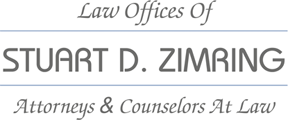A Power of Attorney for Health Care (that often includes an Advance Health Care Directive) is a document in which you appoint someone else (the “agent” or “attorney-in-fact”) to make medical decisions for you if you cannot do so. The Power of Attorney for Health Care also often includes your specific instructions or preferences for your care and treatment.
Most people know that a Power of Attorney for Health Care is important and that they should execute such a document, but many people never actually get around to doing so. Forgetting or putting off signing a Power of Attorney for Health Care only increases the likelihood of problems down the road.
The Power of Attorney for Health Care is important because it appoints someone to legally handle your medical affairs if you cannot do so. It also gives you peace of mind and assurance that you will be taken care of in an emergency or after you are unable to make decisions.
People also often forget about the consequences of not executing a Power of Attorney for Health Care. If you become incapacitated and cannot make decisions regarding your health care, and you do not have a valid Power of Attorney for Health Care, your family or friends must go to Court to appoint a Conservator to make health care decisions for you, which is often a very time-consuming and expensive process.
Just as it is important to execute a Power of Attorney for Health Care, it is also important to make sure your Power of Attorney for Health Care is still valid. Due to a former California law, Powers of Attorney for Health Care executed between January 1, 1984 and January 1, 1992 automatically terminated seven years after the date of execution. With this, if you executed a Power of Attorney for Health Care prior to January 1, 1992 and have not since updated your document, you need to execute a new Power of Attorney for Health Care.
[Disclaimer: The materials contained on this website have been authored or gathered by the Law Offices of Stuart D. Zimring, and are intended for informational purposes only. It is not intended to be and is not considered to be legal advice. Transmission is not intended to create and receipt does not establish an attorney-client relationship.]
